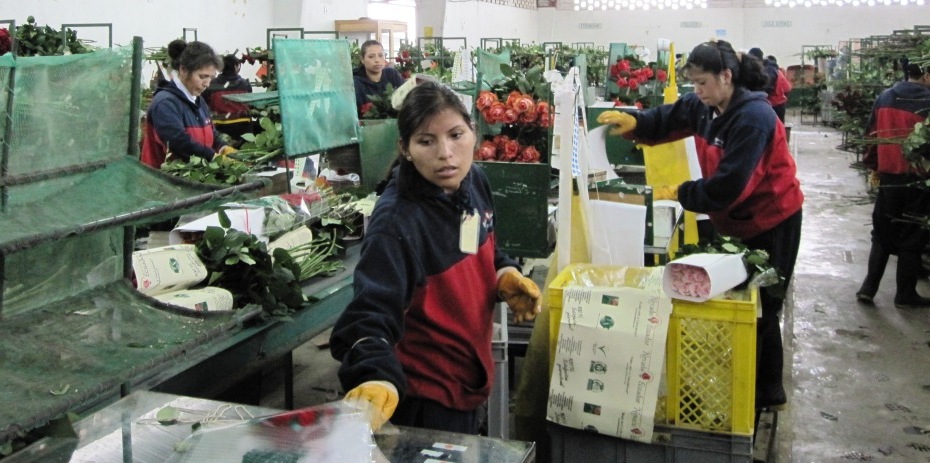Center for Fair & Alternative Trade
Fair Trade, Labor Rights, & Gender

Fair Trade and Labor Rights initiatives are often seen as divergent approaches to improving social conditions in the global economy. Yet these strategies focus on many of the same issues and encounter many of the same problems. Fair Trade and Labor Rights initiatives each aim to empower workers and producers, provide a regulatory framework for preventing the exploitation of workers and the environment, and address the needs of the growing number of female laborers, the most vulnerable segment of the labor market, working in global factories and farms.
From the labor side, we analyze the emergence, organizational characteristics, and effectiveness of International Framework Agreements which are negotiated between multinational corporations and global union organizations. Our research suggests that these new agreements are unique in their extension across countries and the commodity chain and represent a promising institutional innovation at the crossroads of Fair Trade and Labor Rights efforts. From the Fair Trade side, we focus on the experience of certification efforts in major new commodities like flowers, bananas, tea, and citrus which are produced by large enterprises using hired workers. Our research analyzes how successful Fair Trade, which was designed to address the conditions of peasant producers, has been at promoting partnerships with worker organizations and improving the conditions of workers. Since a large number of hired workers are women we focus specifically on the gender dynamics of Fair Trade and the implications of certification for female as well as male workers.
CFAT Personnel: Laura Raynolds, Dimitris Stevis, Molly Eckman, Jennifer Keahey, Claudia Rosty, Sneha Kadyan, & Austin Luzbetak
Funding: National Science Foundation (NSF); Ford Foundation; Inter-American Foundation
Products:
- Raynolds, Laura T. “Gender Equity, Labor Rights and Women’s Empowerment: Lessons from Fairtrade Certification in Ecuador Flower Plantations.” Agriculture and Human Values, in press. https://rdcu.be/b8wZy
- Raynolds, Laura T. & Claudia Rosty “Fair Trade USA Coffee Plantation Certification: Ramifications for Workers in Nicaragua.” Development Policy Review 00: 1-20, 2020.
- Raynolds, Laura T. “Fairtrade Certification, Labor Standards, and Labor Rights: Comparative Innovations and Persistent Challenges” Sociology of Development 4 (2): 191-216, 2018.
- Raynolds, Laura T. “Fairtrade Labor Certification: The Contested Incorporation of Plantations and Workers.“ Third World Quarterly 38 (7): 1473-1492, 2017.
- Dimitris Stevis “Global Labor Politics and Fair Trade.” Pp. 102-119 in L. Raynolds & E. Bennett (eds.) Handbook of Research on Fair Trade. Northampton MA: Edward Elgar, 2015.
- Raynolds, Laura T. “Fairtrade, Certification, and Labor: Global and Local Tensions in Improving Conditions for Agricultural Workers.” Agriculture and Human Values 31 (3): 499-511, 2014.
- Raynolds, Laura T. “Fair Trade Flowers: Global Certification, Environmental Sustainability, and Labor Standards.” Rural Sociology 77 (4): 493-519, 2012.
- Raynolds, Laura T. and Jennifer Keahey. “Fair Trade, Gender, and the Environment in Africa.” Ch. 17 in K. Gallagher (ed.) Handbook on Trade and Environment. New York: Edward Elgar Publishing, 2008.
- Raynolds, Laura, Douglas Murray, and John Wilkinson. Fair Trade: The Challenges of Transforming Globalization. London: Routledge. Raynolds, Laura, Douglas Murray, and John Wilkinson, 2007. Including:
- Ch. 5. Raynolds, Laura T. “Fair Trade Bananas: Broadening the Movement and Market in the United States.” Pp. 63-82.
- Murray, Douglas L. and Laura T. Raynolds. “Alternative Trade in Bananas: Obstacles and Opportunities for Progressive Social Change in Global Economy.” Agriculture and Human Values 17: 65-74, 2000.
Back to Research